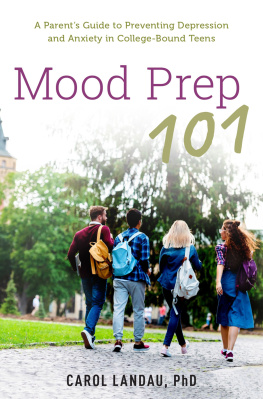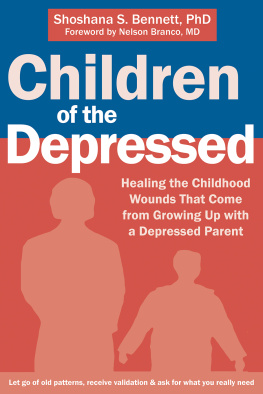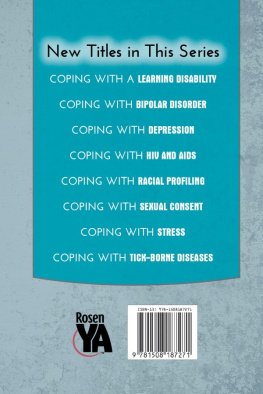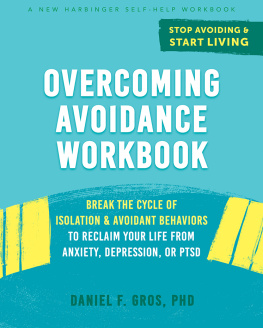Depression afflicts over 5% of Singaporeans in their lifetime, thus ensuring that it ranks as the most common psychiatric condition in our nation, and in the West. Dr Peter Mack, an accomplished hepatobiliary surgeon, has not only developed an interest in mental health but has also been trained in a form of psychological therapy, known as regression therapy, to help persons overcome their emotional problems. It is rare, and indeed highly commendable for a surgeon to be as psychologically minded as Dr Mack, but he is an unusually gifted and compassionate doctor, who cares not only for the physical, but the emotional aspects of the person. By giving voice to the struggles depressed subjects experience, Dr Mack is doing a great service to the cause of mental health education, by demystifying depression and hopefully reducing misconceptions and myths surrounding this common illness. I warmly recommend this book to family members, teachers, and counsellors and any others who care for the depressed.
Associate Professor Leslie Lim
Senior Consultant Psychiatrist, Singapore General Hospital
and author of Depression: The Misunderstood Illness
An enlightening and easy-to-read book that has been written out of love and deep compassion for young people.
Carol Loi
Genetic Counsellor

2017 Marshall Cavendish International (Asia) Private Limited
Text and Illustrations 2017 Dr Peter Mack
Published by Marshall Cavendish Editions
An imprint of Marshall Cavendish International

All rights reserved
No part of this publication may be reproduced, stored in a retrieval system or transmitted, in any form or by any means, electronic, mechanical, photocopying, recording or otherwise, without the prior permission of the copyright owner. Requests for permission should be addressed to the Publisher, Marshall Cavendish International (Asia) Private Limited, 1 New Industrial Road, Singapore 536196. Tel: (65) 6213 9300.
E-mail:
Website: www.marshallcavendish.com/genref
The publisher makes no representation or warranties with respect to the contents of this book, and specifically disclaims any implied warranties or merchantability or fitness for any particular purpose, and shall in no event be liable for any loss of profit or any other commercial damage, including but not limited to special, incidental, consequential, or other damages.
Other Marshall Cavendish Offices:
Marshall Cavendish Corporation. 99 White Plains Road, Tarrytown NY 10591-9001, USA
Marshall Cavendish International (Thailand) Co Ltd. 253 Asoke, 12th Flr, Sukhumvit 21 Road, Klongtoey Nua, Wattana, Bangkok 10110, Thailand Marshall Cavendish (Malaysia) Sdn Bhd, Times Subang, Lot 46, Subang Hi-Tech Industrial Park, Batu Tiga, 40000 Shah Alam, Selangor Darul Ehsan, Malaysia
Marshall Cavendish is a registered trademark of Times Publishing Limited
National Library Board, Singapore Cataloguing-in-Publication Data
Name(s): Mack, Peter.
Title: You are not alone : understanding the inner voice of depression in young people / Peter Mack.
Description: Singapore : Marshall Cavendish Editions, [2017]
Identifier(s): OCN 1001725133 | eISBN 978-981-47-9404-6
Subject(s): LCSH: Depression in adolescence.
Classification: DDC 616.852700835dc23
Printed in Singapore by Markono Print Media Pte Ltd
Cover design and all illustrations by Wendy Mack. Email:
For Olivia
Contents
The information in this book is intended to provide a helpful guide to the subjects discussed. The ideas and advice given are the authors opinions and not intended as a substitute for consultation with or treatment by a qualified mental health professional. The names and identities of the interviewees in this book have been changed to protect their confidentiality while preserving the spirit of the work. The references provided are for informational purposes only and do not constitute endorsement of any sources.
Acknowledgement
The author wishes to thank all his interviewees who have kindly agreed to contribute their stories for the purpose of this book.
Preface
This book is written primarily for parents, teachers and caregivers who wish to gain a deeper understanding of the nature of teenage anxiety and depression. Parenting an anxious child is like embarking on a journey into the unknown. No matter how much we think we already know about the problem of anxiety, we still struggle to understand what is going on in our children if they are depressed. Whenever we see them in a stressed state, and not know what might push them over the edge, many of us secretly wish to have access to a control knob we can turn to lower the level of their anxiety.
Dealing with anxious children can be exasperating especially when they place extra emotional demands on their parents. I recall an incident many years ago when I was attending a Meet-the-Parents Session in the junior college where my eldest son was studying. I was then listening to a guest psychologist who was speaking on adolescent growth and developmental health. All of a sudden, from among a crowd of 200 people in the auditorium sprung a question. Maam, a voice sounded desperately. My adolescent son has stopped talking to me recently. What should I do? There was a stir in the audience. Several heads turned in the direction of the lady who posed the question; the atmosphere was tense for a few moments before being gently eased by the speaker, who introduced the notion of the adolescents need for personal space.
The incident awakened me to the degree of emotional turmoil that a depressed child could possibly cause to his parent(s). In the years that followed, several of my colleagues who had depressed children, shared with me their agony of watching their children live in the midst of hidden anxiety and a confusing world of pain. More recently, when some mothers shared with me their concern over how their distressed school-aged children were struggling with suicidal thoughts, the idea of a book that could help these parents germinated.
As parents, we all want our children to succeed. However, when we find our children intensely preoccupied with their inner struggles while hoping for adults to understand them, we feel as desperate as they do. Gradually, we realise that we need to understand them as normal individuals who are just groping around for ways to deal with their own pain and longing for their close ones to connect with and show love to them. Unfortunately, they sometimes take up our full attention as parents and yet break our hearts with their behaviour even as we are establishing a safe haven for them to heal and grow. We thus end up bewildered as to how we can make sense of their inner struggles.
While planning this book, someone alerted me to a newspaper article of an 11-year-old schoolboy who committed suicide after failing his school exams for the first time. Instead of facing his parents disappointment, he chose to end his life by jumping from the bedroom window of a HDB apartment on the 17th level. Apparently, in his first four years in primary school, his mother had been expecting him to score at least 70/100 marks per subject for his exams, failing which she would cane his palm lightly, one stroke for every mark short of 70. However, his mother would also reward him with a gift whenever he did well. Unfortunately, this strategy now turned disastrous.
Next page











